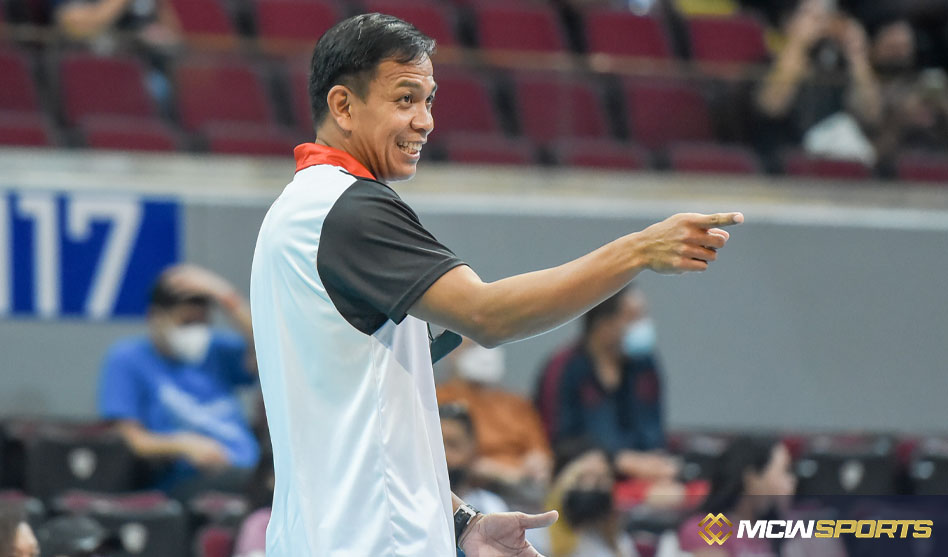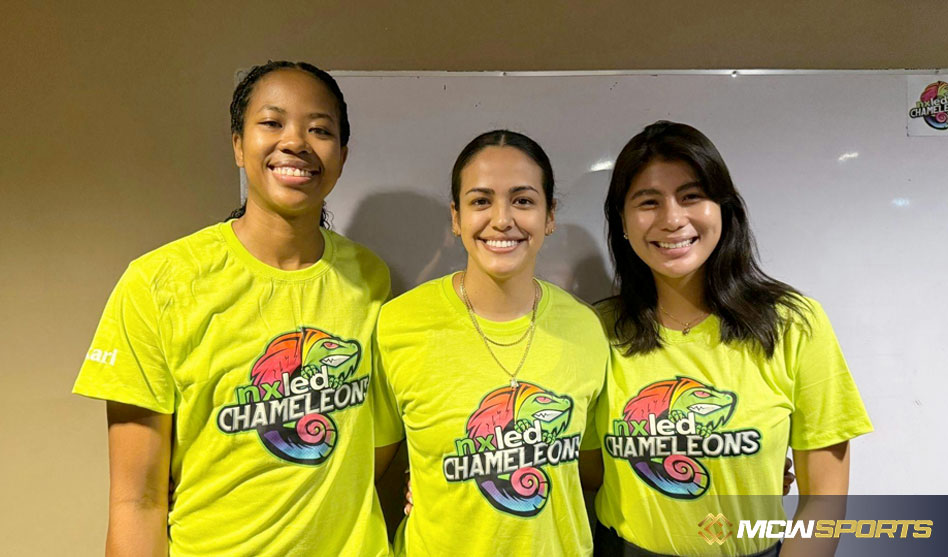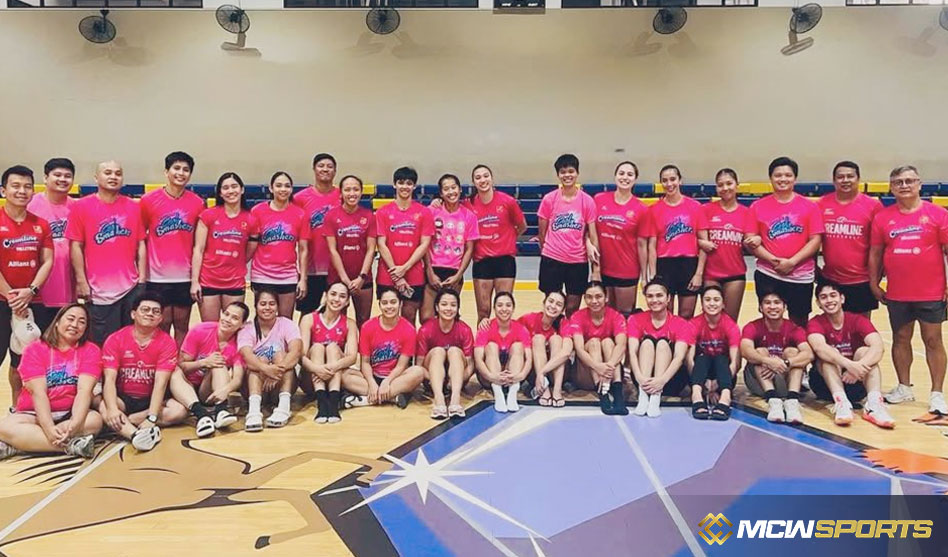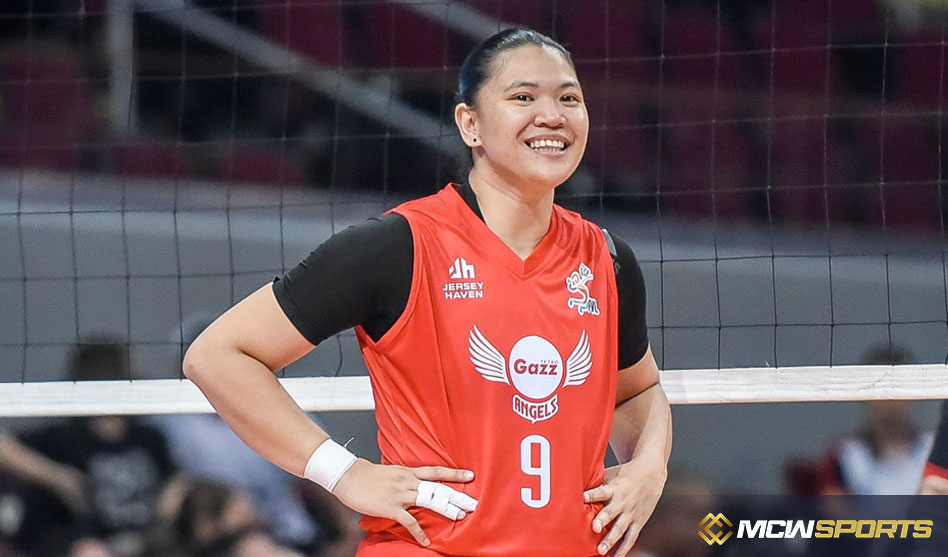This content has been archived. It may no longer be relevant
MANILA, Philippines – Cignal HD Spikers head coach Shaq Delos Santos believes the arrival of Japanese coaches in the Premier Volleyball League (PVL) will serve as a big challenge for local tacticians in the Philippines.
Delos Santos recently attended a training camp in Japan together with the UST Golden Tigresses. He explained that Japanese coaches entering the PVL scene will not only raise the level of competition – it will also help Filipino mentors improve their craft.
“The good thing is, the entry of Japanese coaches that we know are capable of great things. But it doesn’t mean we will just give up,” said Delos Santos.
“Of course for us, this is a huge opportunity that these are our rival coaches. So we also need to prove to ourselves that we can do something that can win or be better,” he continued.
“If we experience difficulties, maybe we just need to absorb it, then keep fighting and keep studying.”
After Taka Minowa joined Nxled last year, two other Japanese coaches have entered the PVL fray. Koji Tsuzubara will handle Petro Gazz, while Master Shimizu will serve as a consultant to Jerry Yee at Farm Fresh.
The multi-titled mentor said the trio’s arrival can help the Philippines adapt to the Japanese style of play. One thing is certain – Filipino coaches will undoubtedly step up their strategies in anticipation of matching up against these renowned Japanese minds.
“Most likely that will happen, but of course, coaches have different styles and teams have different cores. I don’t know, it will depend on how they handle it. But the good thing for me is we, as local coaches, will be more challenged now with foreign coaches coming in,” explained Delos Santos.
“Personally, I will work harder, I will really do my best to improve the performance of our team,” he declared.
At just 37 years old, Delos Santos is already considered one of the best tacticians in Philippine volleyball after leading Petro Gazz and Cignal to multiple titles. But he welcomes the test against world-class coaches like Tsuzubara, Minowa, and Shimizu.
The PVL gaining recognition from top Japanese mentors validates the league’s growth. It also represents a thrilling opportunity for Filipino coaches to elevate their craft against some of the best in the business.
Coaches like Delos Santos, Regine Diego, George Pascua, Oliver Almadro, and Sherwin Meneses can gain valuable knowledge from exchanging ideas with the Japanese tacticians. The more exposure to different philosophies and styles, the more it will raise coaching quality across the PVL.
The integration of Japanese coaching methods into the Philippine Volleyball League (PVL) landscape heralds a potential revolution in the way teams approach the game. Japanese coaches are renowned for their meticulous attention to detail, tactical acumen, and structured training programs. By adopting these practices, PVL teams can modernize and professionalize their approach while preserving the innate flair and creativity that define Filipino volleyball.
Embracing the Japanese coaching philosophy doesn’t mean diluting the unique style of play that characterizes Philippine volleyball. Instead, it presents an opportunity to blend the best of both worlds—incorporating the precision and discipline of Japanese techniques with the natural flair and creativity inherent in Filipino athletes. This fusion has the potential to create a distinctive and formidable playing style that could compete on the global stage.
The influx of new ideas from Japanese coaches serves as a catalyst, pushing Filipino coaches out of their comfort zones and encouraging them to expand their horizons. This shift in perspective is essential for growth and development within the Philippine volleyball community. It challenges coaches to evolve and adapt, ultimately raising the overall standard of play in the PVL.
Moreover, the introduction of Japanese coaching principles offers a blueprint for maximizing the talents of Japanese imports now integral to many PVL teams. Understanding and aligning with the coaching methods of these foreign players can foster better communication, coordination, and cohesion within the teams.
A crucial aspect of this knowledge transfer is the potential erosion of the age-old notion that foreign coaches are inherently superior. Filipino coaches, known for their passion and dedication, are eager to absorb every insight from their Japanese counterparts to enhance their coaching prowess. This cultural exchange doesn’t just benefit the teams on the court; it also contributes to the overall development and elevation of Philippine volleyball.
The arrival of elite Japanese coaches has undeniably captured the attention of the volleyball world. However, it is the Filipino coaches who stand to gain the most from this cultural exchange. The merging of diverse coaching philosophies has the potential to shape a new era for Philippine volleyball, one where innovation, excellence, and a unique playing style define the sport at both the domestic and international levels.

 English
English










